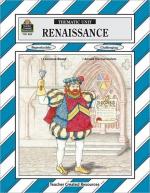|
This section contains 1,145 words (approx. 4 pages at 300 words per page) |

|
Dark Ages. Greek culture produced great advances in natural philosophy (science) and medicine in classical antiquity. These developments were written in Greek, even after the Roman empire expanded and incorporated regions previously ruled by Greek kings. Educated Romans of the empire studied these subjects in Greek and some, such as Emperor Marcus Aurelius, even wrote in Greek. When the economy of the Western Empire began to collapse in the fifth and sixth centuries C.E., the best works of Greek scientific and medical literature had not yet been translated into Latin and, as a result, largely disappeared in the West as knowledge of the Greek language faded. Roman authority crumbled, and ensuing centuries of rule by various Germanic tribes contributed to a general decline of education. This period, from the sixth to the ninth century, has been called the Dark Ages because scholarship sank to a low ebb...
|
This section contains 1,145 words (approx. 4 pages at 300 words per page) |

|



